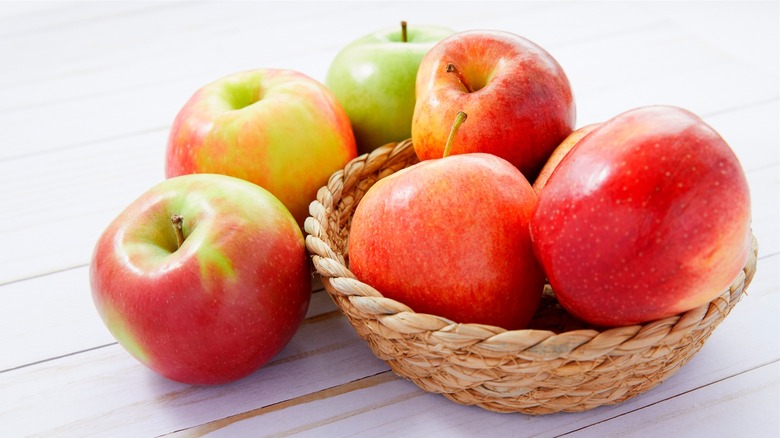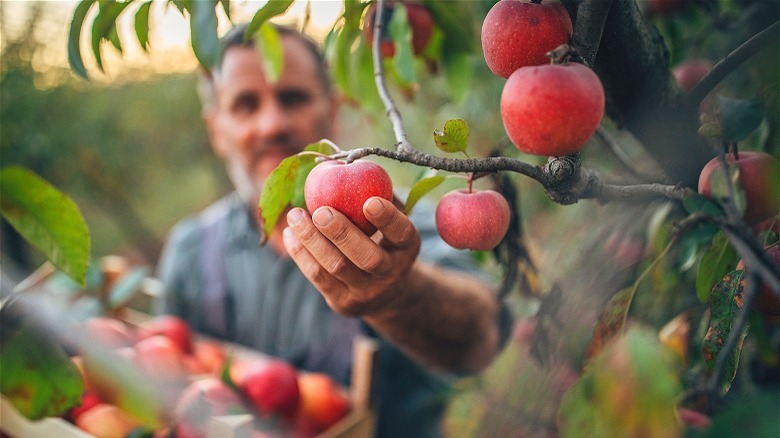The US State That's Responsible For Growing The Most Apples
Apples are more than a fruit: They're cultural icons, too. They've played parts in myths and folklore as symbols of knowledge — Steve Jobs loved them enough to make them the logo of his technology company. Fall festivities include dipping the fruit in caramel, drinking cider, or bobbing for apples. The most popular varieties are Gala, Red Delicious, Honeycrisp, Fuji, and Granny-Smith. They're a refreshing snack right from the tree or prepared in desserts like apple pies, crumbles, and all kinds of pastries. There's no question that the ubiquitous, popular produce is resolutely American.
According to the USDA, the United States is the third-largest producer of apples globally, with Washington producing the most of any state in the nation. The World Population Review, using data from the United States Agricultural Statistics Service, found that the Evergreen State produced 6.7 billion tons of apples in 2023. We can also thank this state for growing the most blueberries. What is it about Washington that gives its farmers the ability to cultivate so many of our favorite fruits?
Washington, where apples thrive
Washington stays ahead in the apple game. Scientists at Washington State University even developed a new kind of apple — the long-lasting Cosmic Crisp. According to the Washington Apple Commission, the state grows over 30 varieties across more than 175,000 acres of orchards. Apple trees thrive in this geography because volcanic soil in the Pacific Northwest is dense in nutrients. Climates with freshwater streams from the mountains help create the perfect conditions for growth — cold at night and warm during the day. Keeping this hot-cold balance makes sense because apples originated in Kazakhstan, which has a similar diurnal shift pattern. The trees require specific seasonal care and may take several years to bear fruit.
Washington farmers take pride in their orchards. It makes sense, considering they were the first state to implement apple grading regulations that were eventually picked up by the United States Department of Agriculture. These metrics include color, size, taste, and quality. Every apple also must be harvested and inspected by human hands. They're delicate fruits, so clunky machinery would cause them to bruise and lead to more food waste.
All of Washington's effort comes into play when you buy an apple from the grocery store or pick one from an orchard. Farmers work hard to ensure that your food is able to grow safely and free of pests. So, next time you pour an apple cider from the Yakima Valley, make sure to raise your glass to the people who made it happen. Thanks, Washington!

